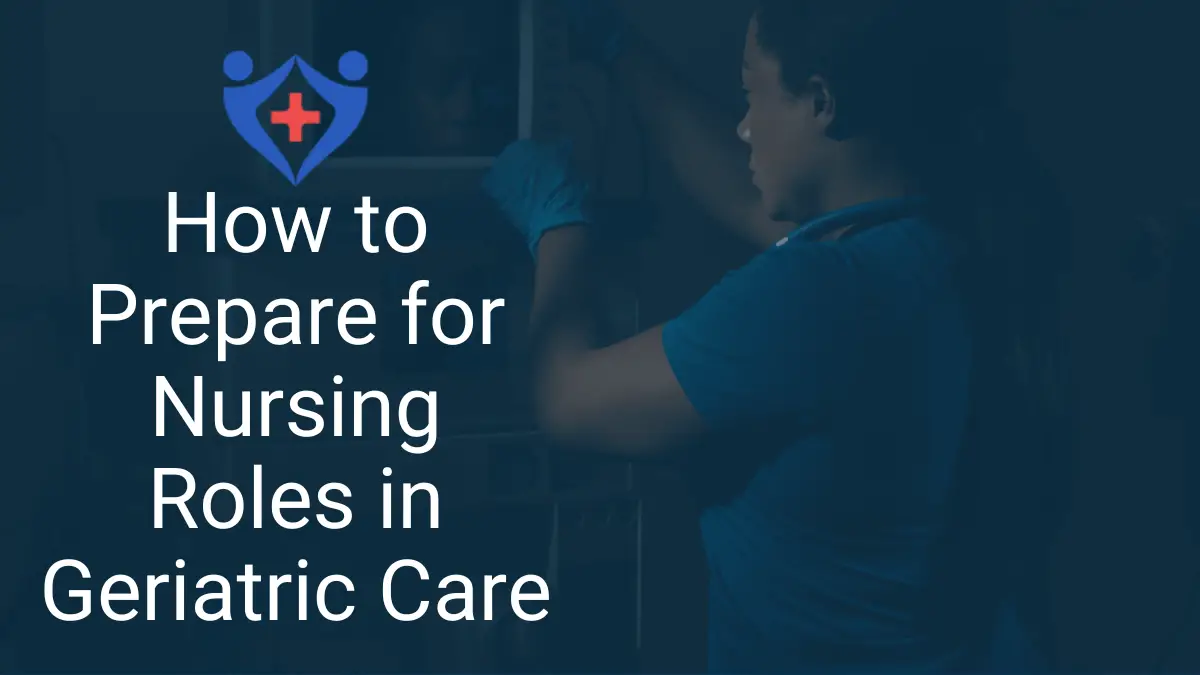As the population continues to age globally, the demand for geriatric care nurses is on the rise. Nursing roles in geriatric care require a unique set of skills and knowledge to provide optimal care for elderly patients. Whether you’re a seasoned nurse looking to transition into geriatric care or a nursing student interested in specializing in this field, proper preparation is essential. In this guide, we’ll explore the steps you can take to prepare for nursing roles in geriatric care, covering everything from education and training to practical skills and professional development.
Understanding Geriatric Care Nursing:
Geriatric care nursing involves providing specialized care to elderly patients, focusing on their unique physical, mental, and emotional needs. Nurses in this field play a crucial role in promoting the health and well-being of older adults, managing chronic conditions, and addressing age-related challenges such as mobility issues, cognitive decline, and social isolation.
Table:
| Practical Skill | Description |
|---|---|
| Effective Communication | Communication techniques for elderly patients with sensory impairments or cognitive deficits. |
| Falls Prevention | Strategies for assessing fall risk and implementing preventive measures in geriatric care settings. |
| Medication Management | Best practices for medication reconciliation, dosage calculations, and monitoring in elderly patients. |
Education and Training:
- Pursue a Bachelor of Science in Nursing (BSN): A BSN degree provides a strong foundation in nursing principles and prepares you for advanced practice in geriatric care. Many employers prefer candidates with a BSN due to its comprehensive curriculum and emphasis on evidence-based practice.
- Complete Geriatric Nursing Courses: Consider enrolling in specialized courses or certification programs focused on geriatric nursing. These courses cover topics such as gerontology, geriatric assessment, and age-related health conditions, equipping you with the knowledge and skills needed to excel in this field.
- Gain Clinical Experience: Seek opportunities to gain hands-on experience working with elderly patients during your clinical rotations or internships. This experience will help you develop essential skills in geriatric assessment, care planning, and communication with older adults and their families.
Practical Skills for Geriatric Care Nurses:
- Effective Communication: Communication is key in geriatric care, as older adults may have hearing or vision impairments, cognitive deficits, or language barriers. Practice active listening, use clear and simple language, and be patient and empathetic when communicating with elderly patients.
- Falls Prevention: Falls are a leading cause of injury among older adults, so it’s essential to assess fall risk and implement preventive measures. Learn techniques for assisting with mobility, installing safety devices, and educating patients and their families about fall prevention strategies.
- Medication Management: Older adults often take multiple medications, increasing the risk of adverse drug reactions and interactions. Develop expertise in medication management, including medication reconciliation, dosage calculations, and monitoring for side effects.
Professional Development:
- Continuing Education: Stay updated on the latest developments in geriatric care by participating in continuing education programs, attending conferences, and reading peer-reviewed journals. Lifelong learning is essential for maintaining competence and providing high-quality care to elderly patients.
- Pursue Advanced Certifications: Consider pursuing advanced certifications in geriatric nursing, such as the Certified Gerontological Nurse (CGN) or Gerontological Nursing Certification (RN-BC). These certifications demonstrate your commitment to excellence in geriatric care and may enhance your career opportunities.
- Networking and Collaboration: Build relationships with other healthcare professionals, including physicians, social workers, and physical therapists, to facilitate interdisciplinary collaboration and improve patient outcomes. Networking can also provide valuable support and mentorship as you navigate your career in geriatric nursing.
Conclusion:
Preparing for nursing roles in geriatric care requires a combination of education, training, practical skills, and professional development. By investing in your education, gaining clinical experience, developing practical skills, and pursuing ongoing professional growth, you can become a competent and compassionate geriatric care nurse capable of making a meaningful difference in the lives of elderly patients. Embrace the challenges and rewards of geriatric nursing, and embark on a fulfilling career dedicated to serving older adults with dignity and respect.

